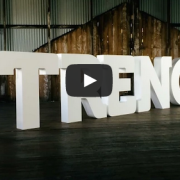The importance of keeping your details up-to-date
It’s a fast moving world, especially at the moment. Even though there’s so much going on, it’s essential to update your insurance broker any time your circumstances change to help ensure the cover you have in place is still appropriate for your enterprise.
A popular business pivot many beer and spirit firms have undertaken in recent months is a great example of what can go wrong if firms don’t tell their broker when their operations change.
During the early stages of the corona virus pandemic, many of these firms switched from making alcohol to hand sanitiser, as the need for their regular products dropped as bars and pubs closed and as demand for sanitiser sky rocketed.This was a great commercial solution for these firms, and a wonderful way to keep staff employed.
But it’s important these enterprising enterprises let their insurers know how their operations had changed, because their risks also shifted alongside their product lines.
Let’s say, for instance, the hand sanitiser damaged people’s skin and caused painful rashes, and the affected customers or businesses that had purchased the product made a claim against the business. The insurer could deny the claim if the business had not informed their insurer through their broker they were changing their product line, leaving the business liable to pay any damages from their own earnings.
“It’s important to tell your broker any time you circumstances change, who can in turn let your insurer know,” says John Clark, Steadfast’s broker support manager.“This is because policyholders should disclose anything that may affect the insurer’s decision to cover the business.
These include things like your business premises becoming unoccupied and reduced security,” he adds.There are many other situations organisations are facing at the moment they should also let their broker know about.“Many businesses like hotels and retailers may have seen their stock levels fall during the lockdown.
Read the full article on Steadfast Well Covered.







